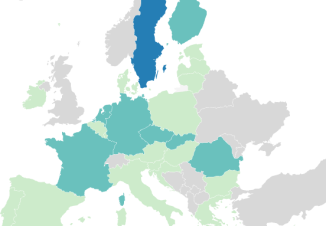
Background
Ms Isabel González Castro, a Spanish security guard who had recently given birth and was breastfeeding, worked a varying pattern of shifts, some of which were at night. She asked for her contract to be suspended and for a compensatory allowance to be paid, requesting a certificate from her mutual insurer declaring that her work patterns posed a potential risk to breastfeeding. The insurer refused her request and having lodged a complaint about this decision that was also rejected, Ms González Castro appealed to the High Court of Justice of Galicia.
The European Court of Justice ruling
The Galician Court asked the European Court of Justice to interpret the concept of ‘night work’ in EU Directive 82/95 on the health and safety of pregnant and breastfeeding workers. On 19 September 2018, the Court ruled that a pregnant or breastfeeding worker whose shift pattern includes night work should be considered a ‘night worker’ for the purposes of the Directive. The judgment noted that the general Directive on the organisation of working time (2003/ 88) interprets night work in this broad manner and legislation specifically designed to protect pregnant and breastfeeding workers should not be interpreted less favourably.
The Galician Court also asked the European Court of Justice whether the burden of demonstrating that Ms González Castro was treated in a manner that respected the principle of equal treatment should fall on her insurer. The equal treatment Directive (2006/54) states that where a worker provides factual evidence of direct or indirect discrimination, the burden passes to the other party (habitually the employer) to demonstrate that there has been no breach of the principle of equal treatment.
The European Court of Justice held that if the insurer’s assessment of the risk of night work to Ms Gonzalez Castro did not take into account her specific circumstances and the risks night work posed to her as a breastfeeding mother, this would be evidence of direct discrimination on the grounds of sex and the burden of proof should be reversed, meaning that Ms González Castro’s insurer would have to demonstrate that the principle of equal treatment was respected. It is now the responsibility of the Galician Court to decide on the facts whether this is indeed the case.


